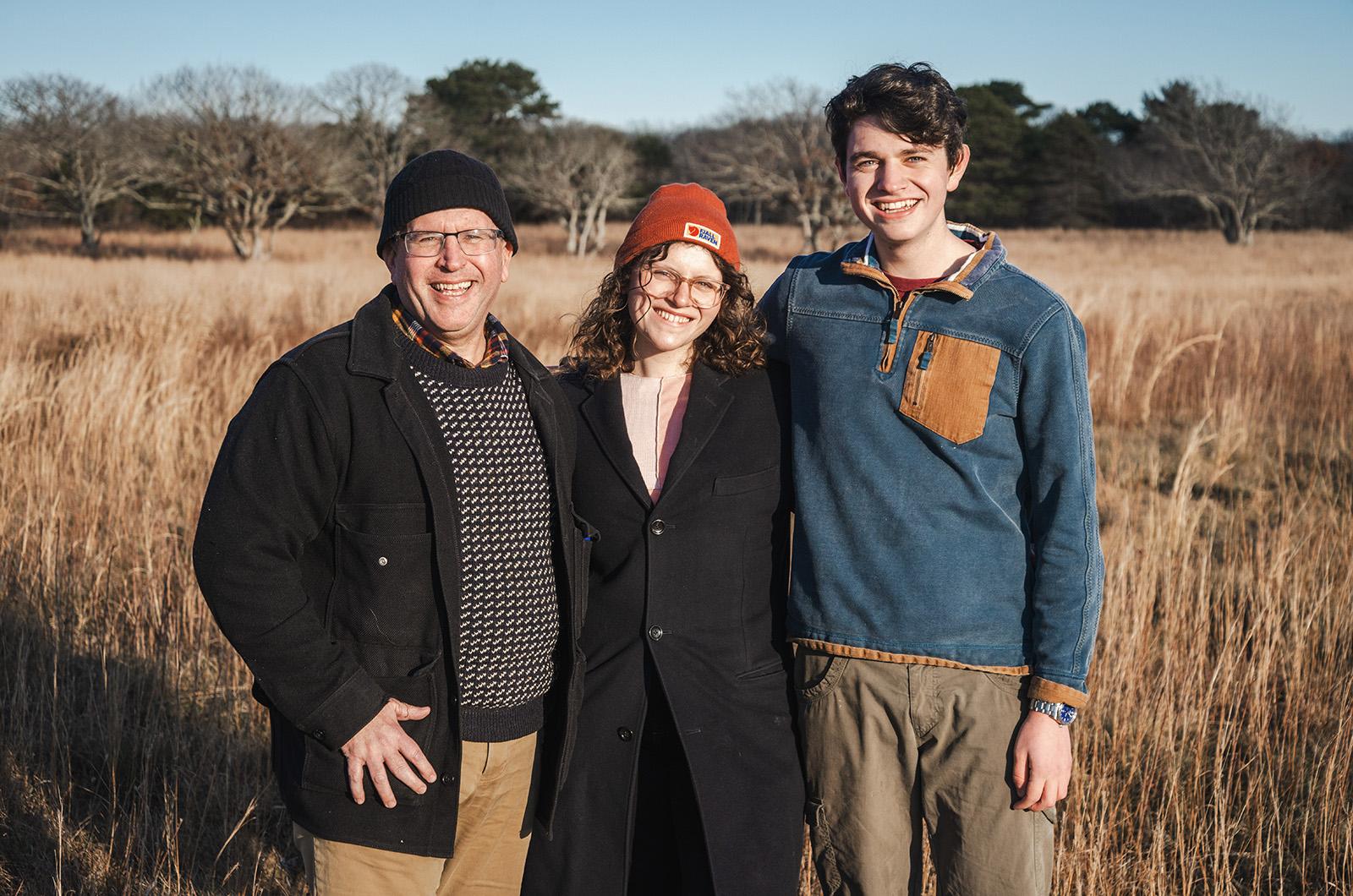It began four decades ago, at Boy Scout Troop 27 in Durham, Conn. There, a young Adam Moore, now executive director of the Sheriff’s Meadow Foundation, noticed how all-terrain vehicle use at a local preserve had eroded the bank of a stream.
Mr. Moore decided to do something about it, completing his first habitat restoration as an Eagle Scout project, the final requirement to achieve the highest rank in scouting.
“Scouting was the best thing I did as a child,” said Mr. Moore. “I loved camping, I loved hikes, I loved everything I learned.... It had a big influence on my career, obviously.”
Since then, that love has become generational. Mr. Moore’s daughter Ingrid became the Island’s first female Eagle Scout in 2021, and this fall his son Huck became the third member of the family to achieve the rank.
“I feel very fortunate that they were involved in scouting and made it all the way,” Mr. Moore said. “It takes a lot of dedication.”
From the start, scouting was a family affair for the Moores. Huck joined the Cub Scouts in the first grade and Adam got involved as a den leader soon after.
Ingrid, too, got involved around the same time. Although the organization had yet to allow girls, she was a constant presence at meetings and activities as Huck’s older sister.
“It was fun. There was no reason for me not to participate,” Ingrid said. “It would be like, oh, they’re using the knives outside, might as well join. Or, oh, we’re going camping and making fires, I want to do that.”
The troop, Huck said, was always small, with three or four core members and others who would come and go.
“We have this bond. We’ve been camping under the trees in some weird places, saw bears and went whitewater rafting,” Huck said. “You get to meet really cool people.”
Early on, Ingrid said, she and Huck traveled along parallel paths in scouting, with her as an informal member. In 2019, though, when girls were first admitted into the organization, their paths bifurcated. Huck continued with Troop 93, and Ingrid in the newly-formed Troop 193.
For her, it would be a condensed process of climbing through the ranks. Ingrid was 16 when the Boys Scouts opened its doors to girls, much older than most when she began working towards Eagle.
“There was no time for messing around,” she said. The experience, she said, helped her develop strong planning and organizational skills.
“I think it really helped me achieve larger goals, or know how to prepare myself to achieve them, to work towards it to a point where I don’t find it overwhelming,” she said.
For her project, Ingrid constructed a story walk at Nat’s Farm, a way “to encourage people to get out, go on a walk, read a book.”
Huck continued that legacy of environmentally-minded Eagle Scout projects, completing the trifecta by constructing a black racer snake hibernaculum at the Priscilla Hancock Meadow on the south shore.
“There is a large non-venomous snake on the Island that eats a lot of rodents,” he said. “The main theme of scouting is community, and its important to recognize your ecological community as well.”
Recent development on-Island, Huck said, has cut into racer snake habitat, increasing the likelihood of roadkill tragedies. The hibernaculum, he said, is a refuge for the snake.
“We got a bunch of scouts down to help dig a giant pit about five feet down,” he said. The space was then filled with stones, sticks and PVC pipes. “The snakes come in there and keep warm, lay eggs and mate and stuff like that.”
Both Ingrid and Huck are following in their father’s footsteps on their educational journeys too. Ingrid is majoring in environmental studies at Yale — her father’s alma mater — while Huck, who was recently accepted at Yale, is planning to study environmental engineering next year.
Adam’s only regret, he said, is that the scouts hadn’t opened up the organization earlier, so that his two older daughters could taken part in it.
“My hope is that more young people on the Island get involved with scouting,” he said. “It’s a good chance to pursue so many things that are related to Island life.”





Comments (4)
Comments
Comment policy »